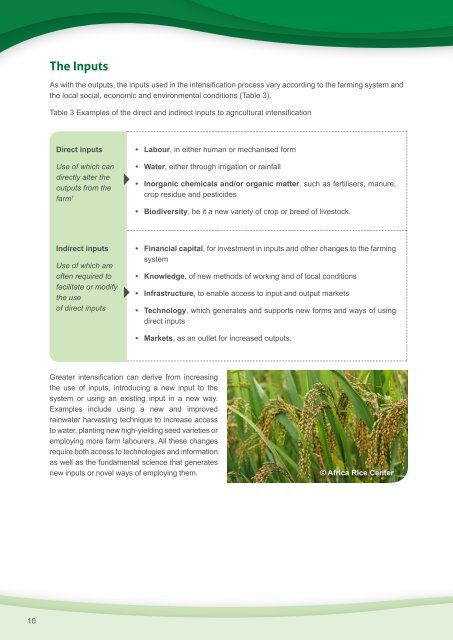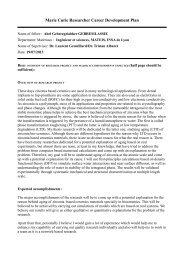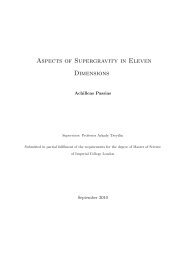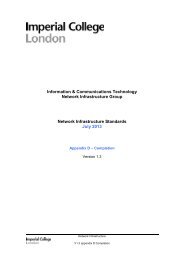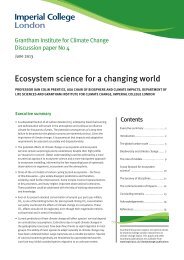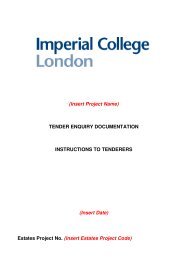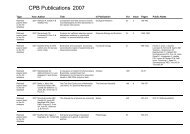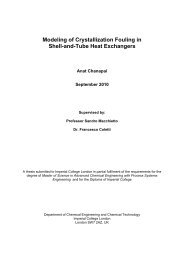Sustainable Intensification: - Workspace - Imperial College London
Sustainable Intensification: - Workspace - Imperial College London
Sustainable Intensification: - Workspace - Imperial College London
You also want an ePaper? Increase the reach of your titles
YUMPU automatically turns print PDFs into web optimized ePapers that Google loves.
10<br />
The Inputs<br />
As with the outputs, the inputs used in the intensification process vary according to the farming system and<br />
the local social, economic and environmental conditions (Table 3).<br />
Table 3 Examples of the direct and indirect inputs to agricultural intensification<br />
Direct inputs<br />
Use of which can<br />
directly alter the<br />
outputs from the<br />
farm 1<br />
Indirect inputs<br />
Use of which are<br />
often required to<br />
facilitate or modify<br />
the use<br />
of direct inputs<br />
• Labour, in either human or mechanised form<br />
• Water, either through irrigation or rainfall<br />
• Inorganic chemicals and/or organic matter, such as fertilisers, manure,<br />
crop residue and pesticides<br />
• Biodiversity, be it a new variety of crop or breed of livestock.<br />
• Financial capital, for investment in inputs and other changes to the farming<br />
system<br />
• Knowledge, of new methods of working and of local conditions<br />
• Infrastructure, to enable access to input and output markets<br />
• Technology, which generates and supports new forms and ways of using<br />
direct inputs<br />
• Markets, as an outlet for increased outputs.<br />
Greater intensification can derive from increasing<br />
the use of inputs, introducing a new input to the<br />
system or using an existing input in a new way.<br />
Examples include using a new and improved<br />
rainwater harvesting technique to increase access<br />
to water, planting new high-yielding seed varieties or<br />
employing more farm labourers. All these changes<br />
require both access to technologies and information<br />
as well as the fundamental science that generates<br />
new inputs or novel ways of employing them. © Africa Rice Center


